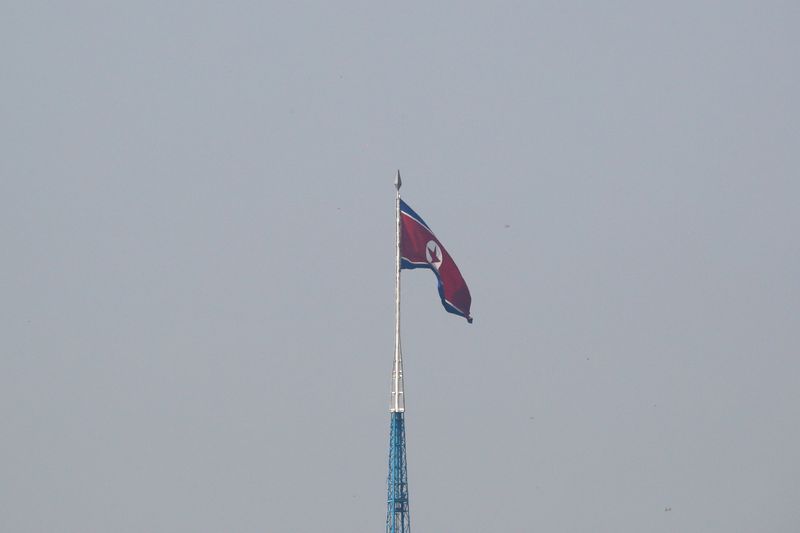North Korea condemns denuclearisation call at neighbours’ summit in Seoul
2024.05.27 08:31
By Cynthia Kim and Josh Smith
SEOUL (Reuters) -North Korea condemned China, Japan and South Korea on Monday for committing to denuclearise the Korean peninsula, describing their joint declaration after a rare summit in Seoul as a “grave political provocation” that violates its sovereignty.
The North has given notice of its plans to launch a rocket by June 4 to deploy a satellite, prompting the three countries to urge a halt to the move that would aid the isolated nation’s ability to deliver a nuclear strike.
At their first three-way summit in Seoul since 2019, the three countries sought to co-operate on security, reiterating positions on regional peace and stability and denuclearisation of the peninsula, they said in a joint statement.
Such discussion is an “insult never to be pardoned and a declaration of war against the Democratic People’s Republic of Korea (DPRK),” however, a spokesman for North Korea’s foreign ministry said in a swift riposte.
“To discuss the denuclearisation … today constitutes a grave political provocation and sovereignty violation,” the unidentified spokesman said in the statement reported by the North’s state media.
Such a move denies the North’s inviolable sovereignty and constitution reflecting the unanimous will of all the Korean people, he added.
Chinese Premier Li Qiang did not single out North Korea for criticism, but rather called on all parties to reduce tension.
While South Korean President Yoon Suk Yeol and Japanese Prime Minister Fumio Kishida urged Pyongyang to scrap its plans to launch a second spy satellite into orbit, Li made no mention of the expected launch.

China angered North Korea when it signed on to UN Security Council resolutions sanctioning Pyongyang’s nuclear weapons and missile program from 2006 to 2017, but in recent years Beijing has joined Russia in blocking new sanctions and calling for existing measures to be eased.
North Korea launched its first military spy satellite into orbit in November, after two earlier attempts failed in 2023.








